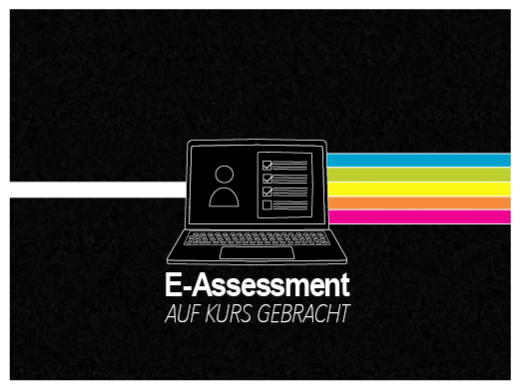


E-Assessment - a crash course
Graz University of Technology
Jan Loitzenbauer
About
General Course Information
It can be the completion of a MOOC, a theory test to obtain a driver's license, a certification test for professionals or the entrance exam for a course of study: Electronic examinations are used in countless critical areas to measure knowledge, skills or performance. It is therefore of crucial importance that a wide variety of guidelines and quality criteria are taken into account when creating electronic assessments (also known as "e-assessments").
In this MOOC, you will acquire the essential skills to...
plan electronic exams in a structured way and use them appropriately.
apply good practices for creating questions, problems and answers.
conduct electronic exams in different settings.
ensure the quality of e-assessments through statistical analysis.
Content
Course Content
Overview of the content of all course units:
|
1 |
■ Introduction to important basic terms ■ Forms of e-assessment (formative, summative, diagnostic) ■ Advantages and disadvantages of electronic exams |
|
2 |
■ Differentiation between objective and subjective examination formats ■ Components of an objective test question ■ Question types for e-assessments ■ Bloom's Taxonomy of Learning Objectives |
|
3 |
■ Guidelines for the creation of questions and problems (quality criteria) ■ Adequate use of problems and multimedia content |
|
4 |
■ Guidelines for creating answer options (quality criteria) ■ Avoidance of unwanted solution hints (cues) ■ Finding plausible distractors |
|
5 |
■ Approaches to planning and creating e-assessments ■ Evaluation of e-assessments ■ Creation of test blueprints ■ Exam presentation parameters |
|
6 |
■ Preparation of an examination date ■ Guidelines for conducting an e-assessment ■ Challenges in conducting e-assessments ■ Adaptation of the electronic examination environment ■ Take-Home-Exam |
|
7 |
■ Quality criteria of an e-assessment ■ Assessment and analysis of e-assessments ■ E-assessment analysis at exam, item and element level ■ Possibilities of e-assessment analytics |
|
8 |
■ Strategies for creating questions to test higher-order thinking ■ Guidelines for creating essay questions ■ Creative approaches to exam design |
Course Goals
After completing this MOOC, you will be able to...
- define important basic terms of computer-assisted assessment.
- find out whether the use and form of an e-assessment is appropriate for certain requirements.
- create all kinds of objective test questions that test the recall, comprehension, application, analysis and evaluation of knowledge.
- recognising and correcting common problems and weaknesses (unwanted solution hints, weak distractors, unsuitable formulations, etc.) of test questions.
- create, prepare, conduct and evaluate e-assessments.
- overcome challenges in exam processing.
- carry out comprehensive analysis and e-assessments for quality assurance.
- create test questions to measure high levels of proficiency.
Previous Knowledge
You do not need any previous knowledge for this MOOC. This course is aimed at teachers in secondary and tertiary education and is open to anyone else interested in the topic of e-assessment.
Course Procedure
This course is divided into 8 units covering different aspects of e-assessment. Work on a module when ever you want and for as long as you want. The learning time for a unit is approx. 2 hours. A module is considered "completed" when you have successfully completed all interactive tasks of a unit, the feedback on the instructional video and the quiz at the end of each unit.
Certificate
For actively participating in the course you will receive an automatic certificate which includes your username, the course name as well as the completed lessons. We want to point out that this certificate merely confirms that the user answered at least 75% of the self-assessment questions correctly.Licence
This work is licensed under CC BY 4.0Course Instructor
Jan Loitzenbauer
Lecturers:
Prof. Jan Loitzenbauer, BEd MEd
Sarah Edelsbrunner, BA M.A. MA
The following experts in the field of e-assessment have evaluated the instructional videos of this course:
Dr. Oliver Ahel
Prof. Dr.med.vet. Jan Ehlers
Dr. phil. Xenia Jeremias
Mag. Gisela Kriegler-Kastelic
Dr. Jens Leimann
Mag. Dr. Ingrid Preusche
Dipl.-Wirtsch.infor. (FH) Christian Rabe
Dr.phil. Sandra Schön, M.A.
Dipl.-Päd. Martin Schön
Mag. Reinhard Schott
Login & Enrol Currently: 289 Participants
Free for all € 0.00
Partners

Graz University of Technology
Graz